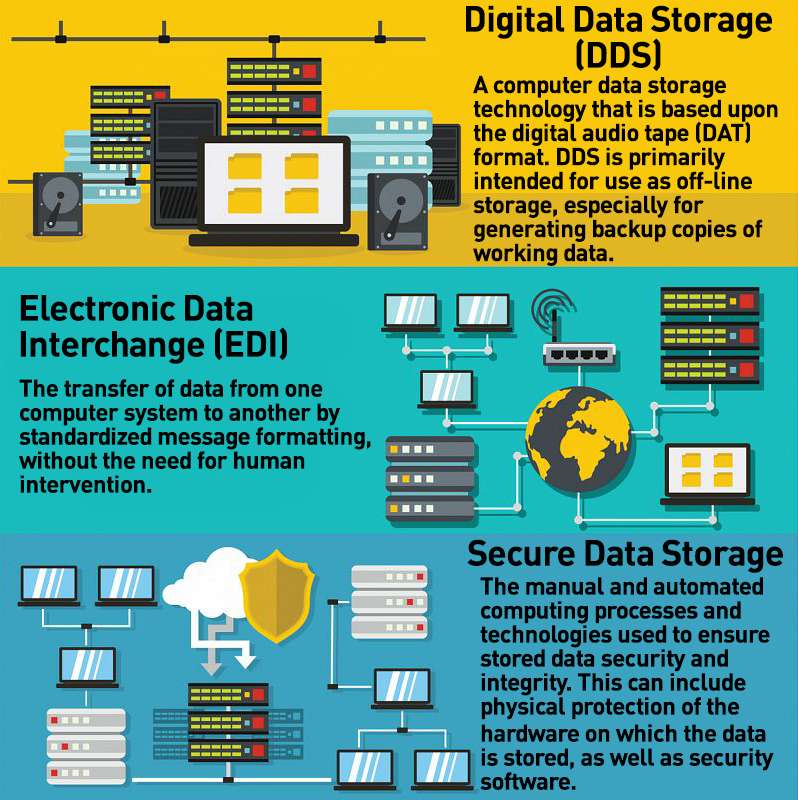Recognizing the Duty of Data Destruction in Strengthening Cyber Security Defenses
Recognizing the Duty of Data Destruction in Strengthening Cyber Security Defenses
Blog Article
The Vital Nature of Information Devastation in Upholding Computer System Safety And Security Services and Protecting Versus Unauthorized Accessibility
In a period where data violations and identity theft are significantly common, the value of effective information damage can not be overstated. Numerous methods, from data wiping to physical destruction, offer as vital safeguards versus unauthorized accessibility.
Significance of Information Devastation
In a progressively electronic world, the importance of data damage can not be overemphasized. As companies amass substantial amounts of delicate details, the prospective consequences of failing to appropriately manage and dispose of that data come to be progressively extreme. Information violations, identification theft, and business espionage posture substantial threats, highlighting the requirement of efficient information destruction practices.

Additionally, as modern technology advances, so as well do the methods by which malicious stars look for to exploit delicate info. Organizations has to continue to be watchful and proactive in their information destruction strategies to guard against these progressing risks. By focusing on information destruction, business not only shield their assets yet likewise foster count on among stakeholders and customers, showing a dedication to accountable information administration and security methods.
Approaches of Effective Information Destruction
To make sure the full and permanent devastation of sensitive data, companies can use a range of efficient methods tailored to their certain needs. One of one of the most usual methods is data cleaning, which entails utilizing specialized software program to overwrite existing data multiple times, making healing essentially difficult. This is particularly valuable for solid-state drives and tough drives, where conventional removal methods are insufficient.
An additional effective strategy is degaussing, which makes use of solid magnetic fields to interfere with the magnetic domain names on storage space media, providing the information irretrievable. This approach is especially fit for magnetic storage space devices, such as disk drive and hard drives.
Physical devastation is likewise a practical option, including the shredding, crushing, or incineration of storage devices. This method guarantees that data can not be recovered, making it suitable for organizations managing highly delicate details.

Conformity With Information Defense Regulations
Organizations have to not only focus on efficient information destruction techniques but likewise make sure compliance with information protection regulations that govern how delicate information is taken care of and dealt with. Complying with these regulations is important for preserving and protecting personal data customer depend on. Regulations such as the General Information Defense Guideline (GDPR) in the European Union and the Medical Insurance Transportability and Liability Act (HIPAA) in the USA enforce rigorous guidelines on data monitoring, that include demands for the protected disposal of delicate information.
To achieve compliance, companies need to implement comprehensive information devastation policies that straighten with these lawful frameworks. This includes recognizing data that calls for devastation, establishing methods for safe methodsâEUR" such as shredding physical media or using software that fulfills industry standards for data wipingâEUR" and keeping in-depth records of devastation activities. Normal audits ought to be performed to make sure adherence to these plans and to determine any kind of prospective areas for improvement.
Failing to abide with information defense regulations can bring about considerable lawful ramifications, consisting of large penalties and damage to a company's credibility. As a result, integrating conformity into information destruction methods is not only a legal responsibility however additionally an important component of a durable details protection method.
Repercussions of Poor Data Handling
Poor information handling can cause extreme effects that extend past prompt operational obstacles. Organizations might face significant financial losses as a result of information breaches, which frequently result in expensive remediation initiatives, lawful fees, and regulatory penalties. These economic effects can prevent and stress resources development, inevitably influencing a company's profits.
Additionally, bad information handling can seriously damage an organization's track record. Companions, stakeholders, and consumers might shed rely on an entity that stops working to shield sensitive info, causing reduced client loyalty and possible loss click reference of company opportunities. This disintegration of count on can take years to reconstruct, if it can be restored in all.
Furthermore, organizations could encounter lawful implications emerging from non-compliance with information defense policies. Such violations might result in charges and investigations, compounding the monetary burden and additional tarnishing the organization's picture.
In the world of cybersecurity, inadequate data monitoring methods can develop susceptabilities that make systems a lot more prone to unauthorized access and cyberattacks. Inevitably, these consequences underscore the crucial significance of implementing durable information handling treatments to safeguard sensitive information and preserve organizational honesty.
Best Practices for Secure Information Disposal


Firstly, information should be categorized according to its level of sensitivity. Sensitive info needs extra rigorous disposal approaches, such as shredding physical files and using sophisticated software program for electronic data wiping. Using certified data damage solutions guarantees compliance with market regulations and requirements.
Second of all, companies need to apply an information disposal plan that mandates regular audits. This policy ought to describe the treatments for information retention and devastation, ensuring that outdated data is dealt with quickly and safely. Training workers on these procedures is crucial to fostering a culture of safety awareness.
Lastly, keeping comprehensive records of disposed data enhances accountability and provides a clear audit path. This documentation needs to consist of the kind of data damaged, the technique utilized, and the date of disposal.
Verdict
In conclusion, the imperative of reliable data destruction appears in its role in boosting computer system safety solutions and mitigating unapproved gain access to dangers. Taking on durable techniques such as information wiping, degaussing, and physical damage, alongside conformity with guidelines like GDPR and HIPAA, is vital for securing delicate info. Ignoring correct data disposal techniques can lead to serious effects, consisting of data violations and lawful repercussions. Applying best methods in secure information disposal inevitably strengthens organizational stability and customer count on.
In a period where data breaches and identification theft are progressively widespread, the significance of reliable information damage can not be overemphasized. data destruction. Information violations, identification burglary, and corporate espionage position considerable hazards, underscoring the necessity of efficient information destruction methods
Conformity with laws such as GDPR and HIPAA mandates that organizations execute rigid data protection measures, including the protected destruction of data at the end of its lifecycle.
By prioritizing data damage, business not only secure their possessions however likewise foster depend on amongst stakeholders and clients, demonstrating a commitment to responsible information monitoring and safety methods.
Organizations should not only concentrate on efficient data damage techniques however likewise make certain compliance with information security policies that govern just how sensitive try this website details is managed click reference and disposed of.
Report this page